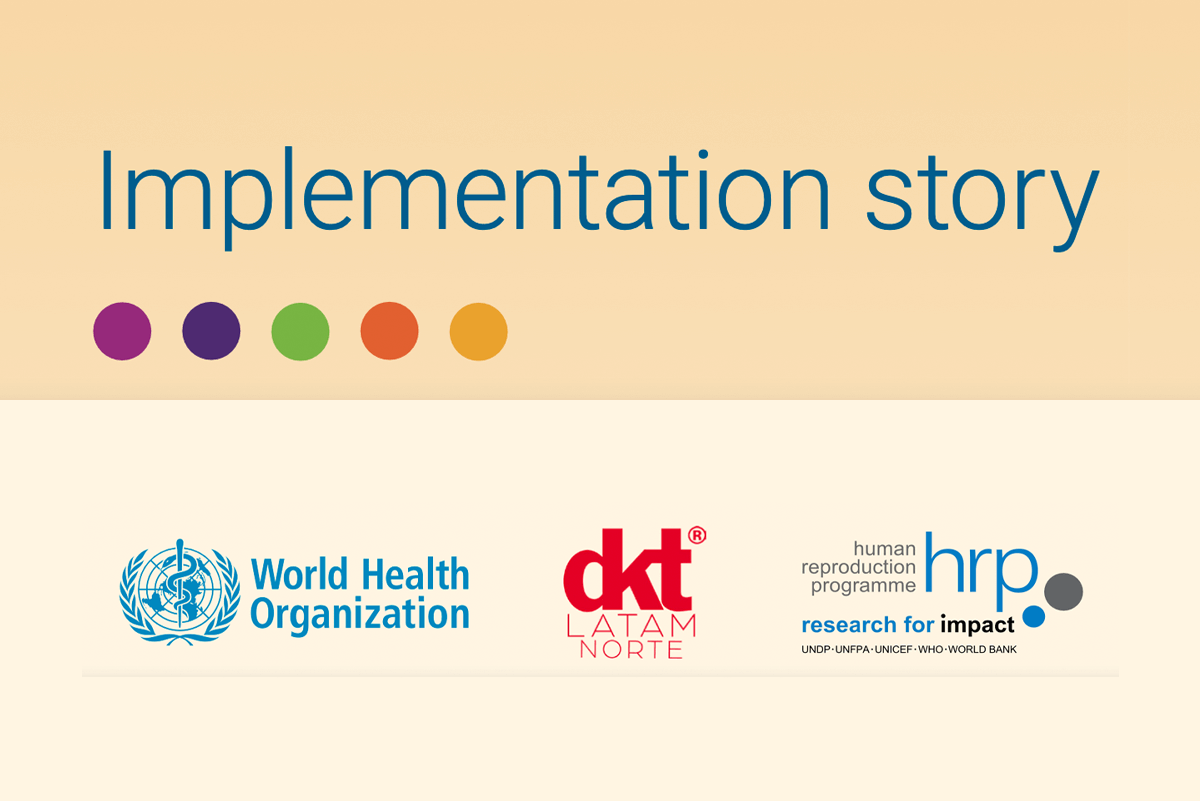
Summary Despite significant societal and legal barriers, the social-marketing entity DKT has introduced safe uterine evacuation products to markets in Central America. A new approach to registration applications emphasized the potential impact on maternal mortality of making products for uterine evacuation available. Mifepristone, misoprostol, and manual vacuum aspiration are life-saving technologies. Successes include the first-ever instances of mifepristone being registered and legally available in Guatemala and Nicaragua. DKT has also registered a new misoprostol brand in the Dominican Republic, El Salvador, Guatemala, Honduras, and Nicaragua. A key implementation component has been training providers on best practices for using the newly available products.
Countries in Central America have some of the most restrictive abortion laws and policies globally; abortion is legal on request in only three countries Cuba, Guyana, and Uruguay, and is prohibited in all circumstances in the Dominican Republic, El Salvador, Honduras, and Nicaragua. A recent analysis of abortion in these countries found that, while there has been a trend towards improved overall morbidity, several other areas of concern exist, including a persistence in the use of curettage, limited use of misoprostol, and limited awareness of clients’ needs along the continuum of care
Registration of quality commodities A key component of DKT LATAM NORTE’s work has been obtaining market authorization or registration for surgical/medical products to increase access to safe abortion. Implementation has required dedicated resource allocation to invest in pharmaceutical registration costs. Surgical abortion involves a low-risk procedure, while medical abortion involves the use of tablets to end the pregnancy. According to the WHO Abortion care guideline, manual or electric vacuum aspiration or dilatation and evacuation is used for surgical abortion, depending on gestational age. Medical abortion regimens involve sequential use of mifepristone followed by misoprostol or, in settings where mifepristone is not available (or is restricted for certain clinical indications), the use of misoprostol alone. DKT LATAM NORTE is registering mifepristone for the first time in history across Mexico, Central America and the Caribbean, and expanding access to misoprostol. The aim is to ensure alignment with the WHO Abortion Care Guideline by removing regulatory, policy, and programmatic barriers that hinder access to and timely provision of safe abortion care (Box 1).
Box 1. Recommendations on registration of products in the WHO Abortion care guideline
The WHO Model List of Essential Medicines (EML) includes the minimum medicines needed for a basic health system, listing the most efficacious, safe, cost–effective medicines for priority conditions (3). Both mifepristone and misoprostol are in the core list of essential medicines in the current EML and a requirement for “close medical supervision” for their use was removed in 2019. For induced abortion, the EML includes mifepristone (200 mg) and misoprostol (200 µg); for the management of incomplete abortion and miscarriage, the EML includes misoprostol (200 µg). The 2022 WHO Abortion Care Guideline notes that mifepristone and misoprostol should be listed in relevant national EMLs or their equivalent and should also be included in the relevant clinical care/service delivery guidelines. In addition, the guideline notes that countries with an essential medical devices list or a similar list for medical devices and quality should include manual vacuum aspiration as part of their commodity strategy.
What was achieved? Implementing this approach has brought DKT LATAM NORTE several successes. This year, WHO’s pre-qualified mifepristone was registered and became available on the legal market for the first time in history in Guatemala and Nicaragua. DKT has also registered a new misoprostol brand in the Dominican Republic, El Salvador, Guatemala, Honduras, and Nicaragua. Also this year, DKT LATAM NORTE successfully launched manual vacuum aspirator kits in Nicaragua.
The strategies that were most effective in overcoming challenges and ensuring successful implementation were in the following areas:
Stakeholder engagement • Work was done to engage and align with pro-mifepristone providers, pharmacists, and other players in the supply chain.
Resource allocation • Resources were earmarked for investment in pharmaceutical registration costs.
Capacity building • Mainstreaming understanding is key to ensuring more successful health outcomes. • Training in medical abortion and manual vacuum aspiration in Mexico and Central America.
Sustainability • Sales of mifepristone, misoprostol, and manual vacuum aspiration kits are helping to fund programme costs on the ground.



